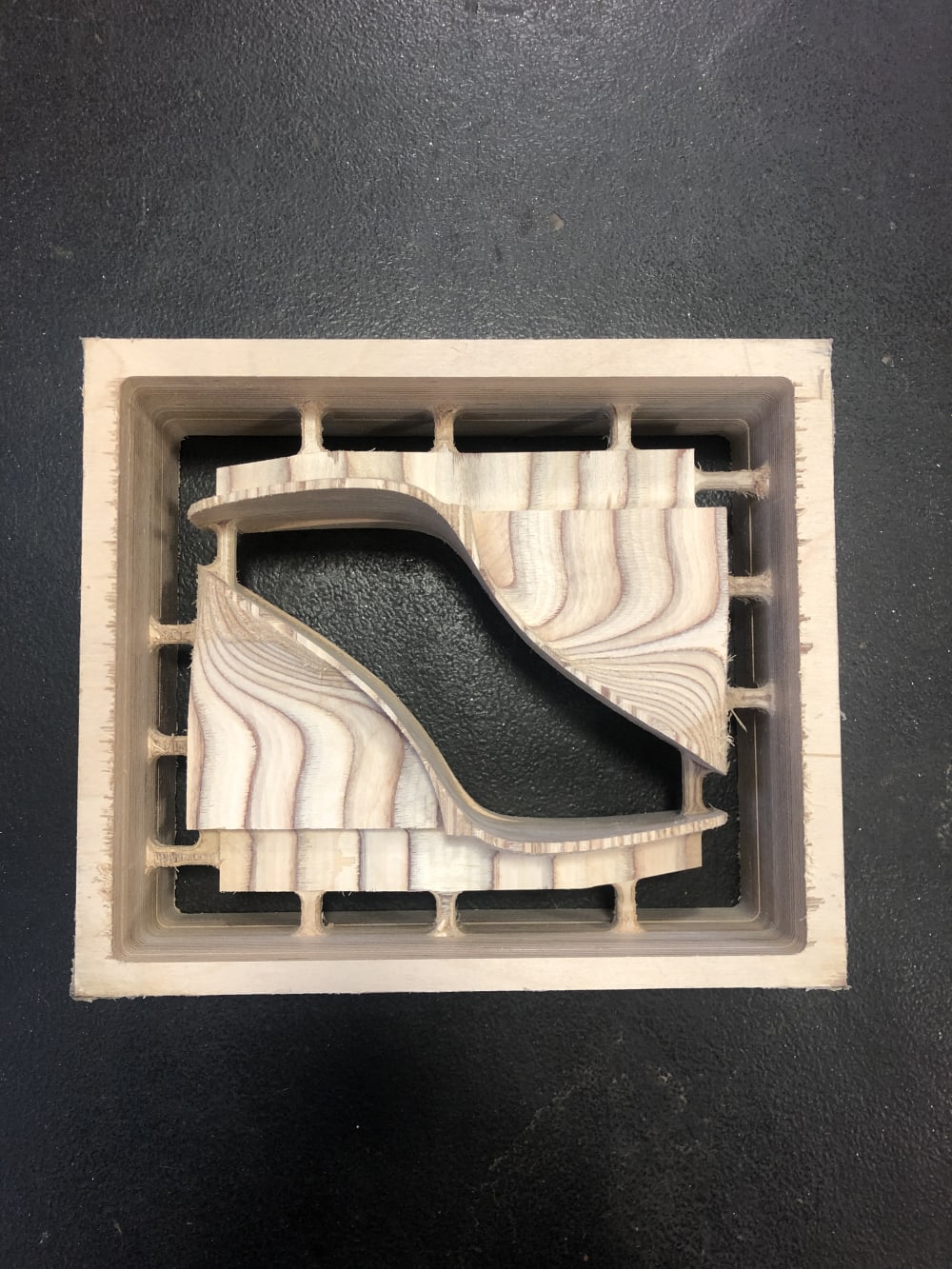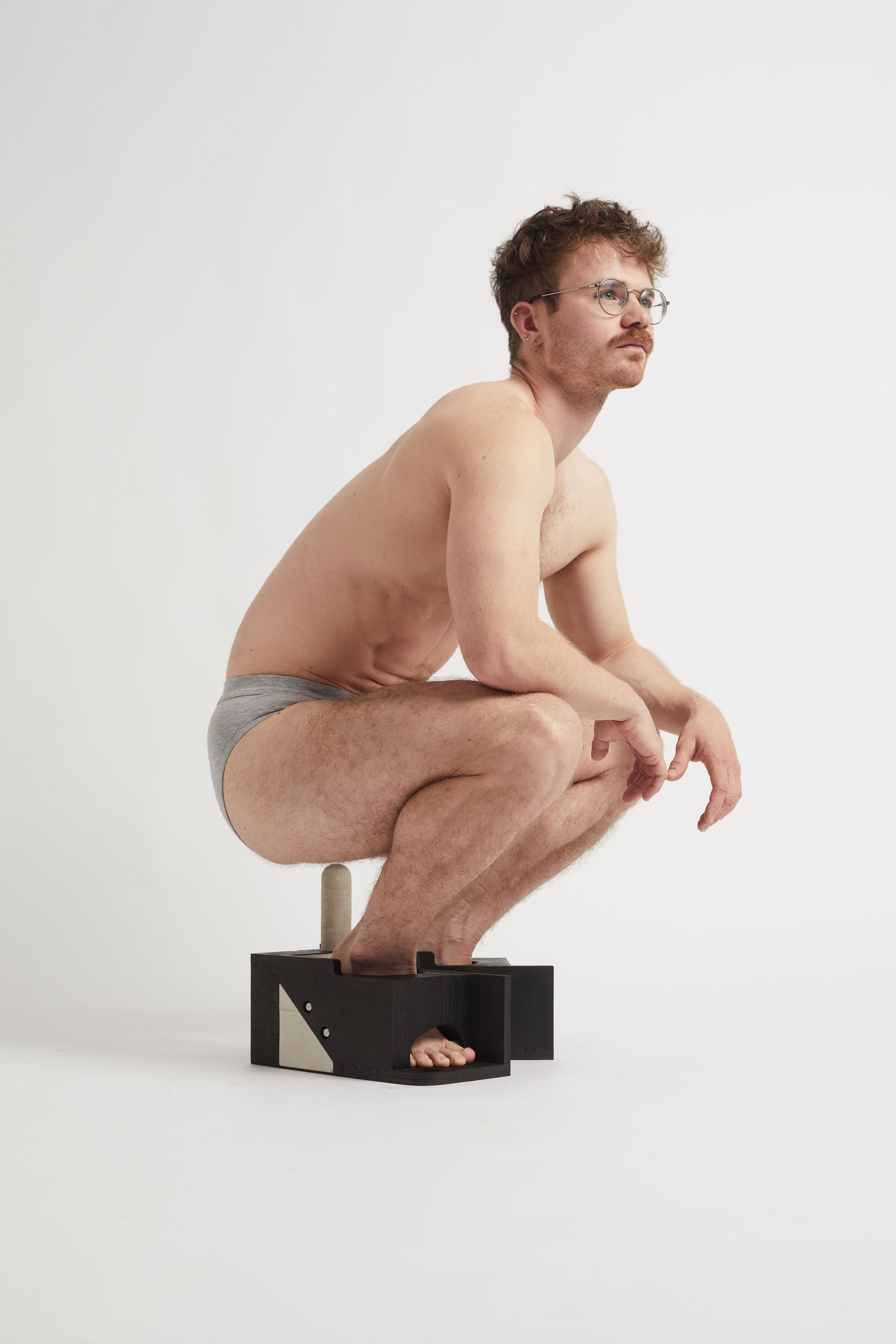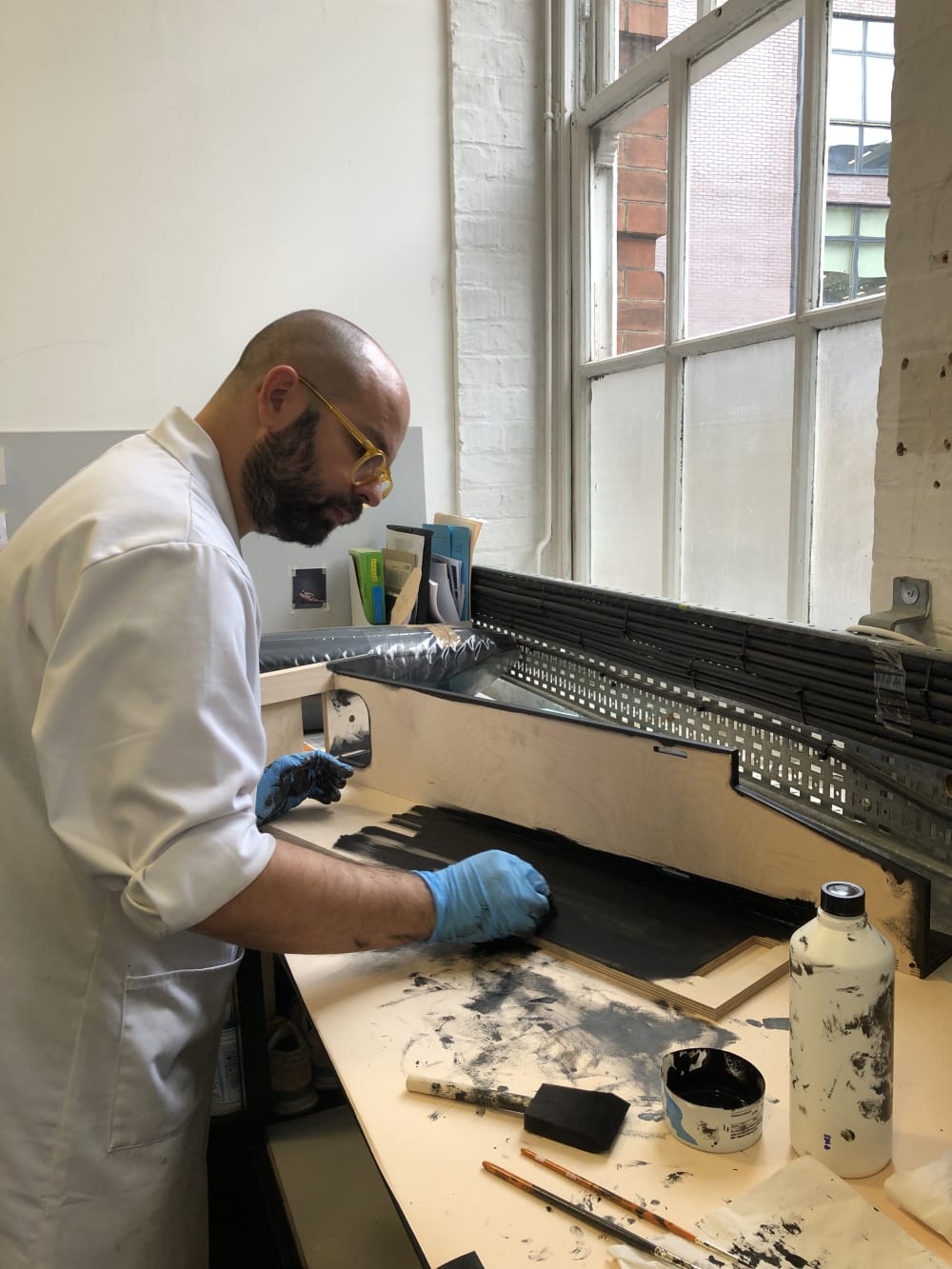
LCF23: Questioning the definitions of femininity and masculinity with Rui Silva

- Written byJ Tilley
- Published date 01 February 2023

LCF Postgraduate Class of 2023 features work from our three world-leading design, communications and business schools to demonstrate how LCF students look beyond the traditional notions of fashion to imagine a new and exciting future. A bustling two-day exhibition will offer a unique perspective into LCF’s postgraduate work by immersing visitors in the future of fashion through displays of design, film, photography, VR and more from LCF’s boundary-breaking students at the infamous Truman Brewery in east London. In light of the celebrations, we're finding out more about work from this year's graduating cohort.
Next, we're chatting with Rui Miguel Ribeiro Da Silva, an MA Footwear graduate who has focused their final collection on questioning the true definitions of femininity and masculinity today.
Tell us about Brut Masculinities – what encouraged you to focus on the shift between traditional ‘femininity’ and ‘masculinity’?
As a gay man, I have always found it difficult to understand and accept what is traditionally defined as ‘feminine’ and ‘masculine’. Personally, I believe that there are various definitions, all influenced by the culture and the society that surrounds us, and these are constantly evolving. The perfect example of this evolution are heeled shoes - while initially worn by men, they became one of the biggest symbols of femininity, and are now getting men’s attention again. This gave me the motivation to explore the subject further with Brut Masculinities. Inspired by Brutalist Architecture, the materials, the form, and the construction processes of the objects are a representation of the traditional idea of a strong, dominant, and rational man. The introduction of the heels is my way of showing that those characteristics can still exist even if what is seen as ‘feminine’ becomes part of ‘masculinity’.
Do you believe that fetishism is explored within footwear enough today?
Feet and footwear are a big part of fetishism, so I believe that there is space for more exploration around it. We can definitely look at new materials, forms, and functions to approach the existing fetishes or even generate new ones.


Tell us about the production process and the structure – how did you create the footwear and what materials have you used and why?
The overall development process was based on a lot of experimentation and prototyping. The form of the objects was defined by the required function, the materials specifications, and construction processes. From my initial research on Brutalism, I knew that I wanted to work with specific materials such as leather, wood, and concrete. I started by exploring and testing these materials to find the best way of making the objects. While focused on manual work mainly due to my passion, I introduced digital technology as a support of my craftsmanship. I utilised CNC machinery for making the wood pieces, 3D printing for the casting moulds, and laser-cutting machine for the leather components. At the end, all the components were assembled and finished by hand by utilising the learnt craft skills and knowledge.
What are you most looking forward to about life after graduation? What are your plans?
I really want to start working in the footwear industry as a developer or technologist and know more about production and manufacturing. At the same time, I want to continue exploring subjects of obsession and develop my own practice-based work.


What led you to study MA Footwear at LCF?
When I moved from Portugal to London 10 years ago, a goal of mine was to pursue a creative career. As I was always drawn to a hands-on approach, while working in the eye care industry, I took a few short courses on leathercraft and shoemaking, including at LCF. I started making leather accessories and shoes on my own and developing my practical knowledge and skills, but I wanted to experience a more academic approach to conceptualisation and design development. Due to my passion for the craft and creativity, I decided to make a big career change and challenge myself by applying for the MA Footwear course.
What would be your best words of advice for someone looking to join the MA Footwear course?
The best words of advice I have ever received was that the final outcome will be the result of the amount of work you put towards it. So, from my experience, I would say work hard, don’t be scared to taking risks, and absorb all the knowledge as much as you can.

- Stay up to date with LCF Postgraduate Degree Show 2023
- View more work on the UAL Graduate Showcase
- Find out more about LCF's Move
- Explore LCF Postgraduate courses
- What’s on at LCF: open days and events